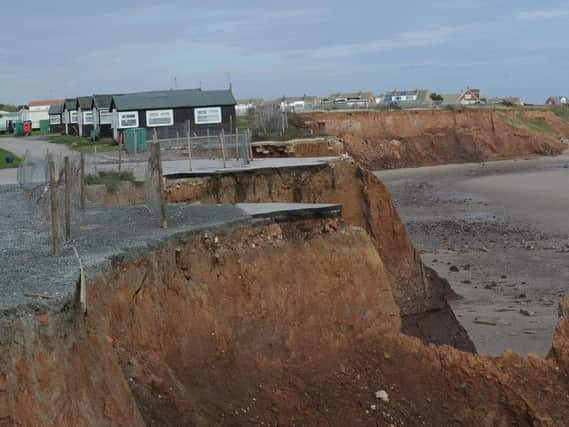'Cycle of coastal funding cuts must be broken', government told


Businesses, land owners and residents in coastal areas need greater certainty and support, a watchdog committee said in an interim report published partway through an inquiry into coastal flooding and adaptation to climate change which is not expected to resume because of the forthcoming General Election.
The risks of sea-level rise are “increasingly significant” regardless of how fast greenhouse gas emissions are cut to slow climate change, and subsequent flooding puts lives, homes and wellbeing in danger, the committee said.
Advertisement
Hide AdAdvertisement
Hide AdMPs want coastal flooding and erosion management to switch from a “holding the line” approach to helping people adapt.


Their report highlights concerns of the National Infrastructure Commission that the Government’s management of flood risk had “too often been short term and reactive”.
Advertisement
Hide AdAdvertisement
Hide AdWhitehall flooding budgets fell in 2006/7 and 2007/8, rose after floods in 2007, were cut again in 2011/12 and saw another upturn following winter floods in 2013/14.
The commission said it would “clearly be better to build flood resilience before it is needed” and that while the Government’s current six-year capital programme offers greater certainty, there is a lack of a clear long-term objective for what level of flood resilience it wants to achieve.
The report published by the Environment, Food and Rural Affairs Committee states: “The Government should explain how the repeated cycle of cuts to funding to below sustainable levels, which are then reversed only after major flood events, will be ended and prevented from re-occurring.”
Committee chairman Neil Parish MP called for greater clarity on how the Government intends to fund “coastal adaptation” and for efforts to attract private sector funding to be stepped up, saying: “If coastal erosion or flooding means coastal communities have to adapt, they need to be provided with the proper support to do so.”
Advertisement
Hide AdAdvertisement
Hide AdA government spokeswoman said: “Adapting to inevitable changes to our climate is vital, and we have been clear that we will take the action required to ensure our country is resilient and prepared for the future.
“The Government has already committed to invest £2.6bn to better protect the country from flooding, delivering over 1,000 flood defence schemes which will better protect 300,000 homes by 2021. As part of this, over £1.2 bn will be invested to better protect 170,000 properties from coastal change.”